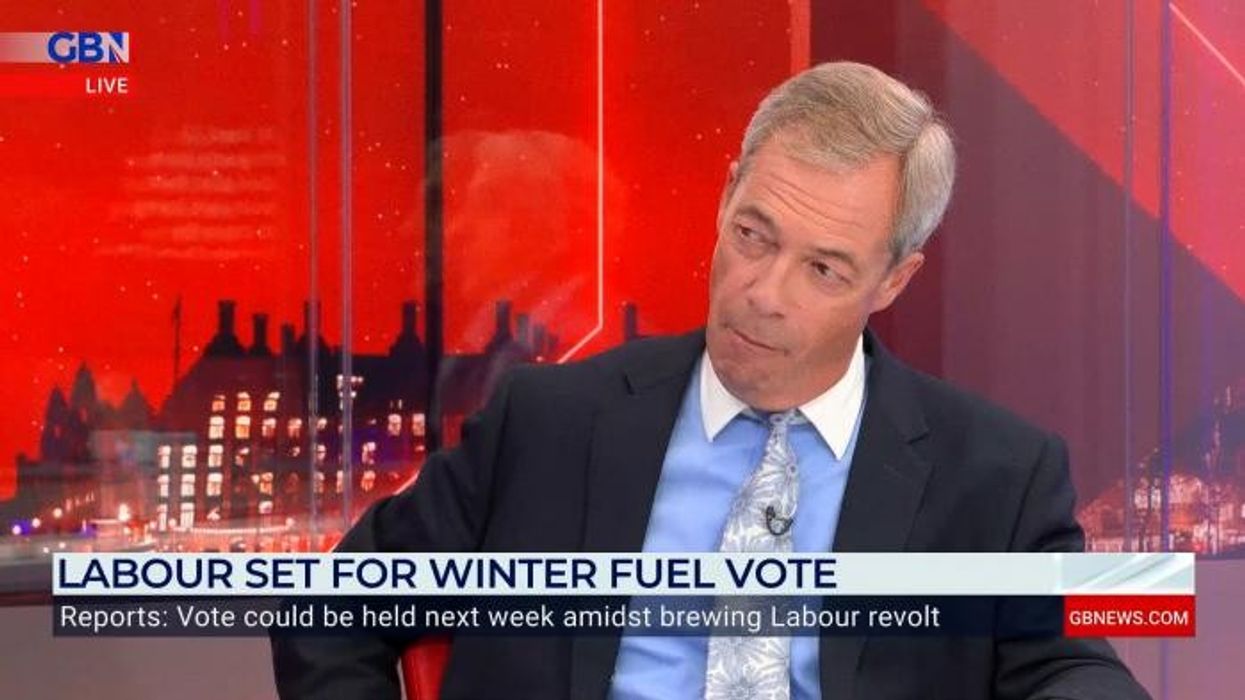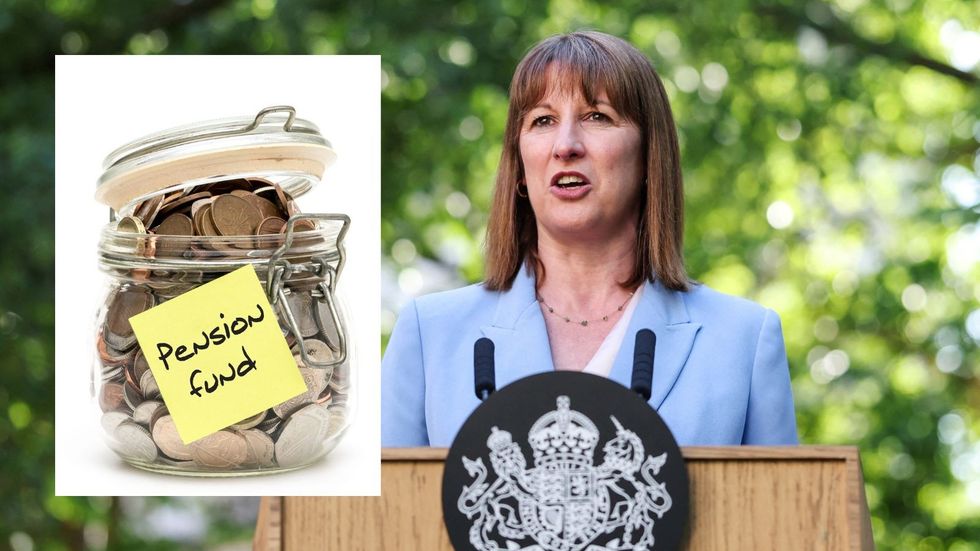Pension system overhaul under fire as Rachel Reeves's shake-up may take 'several years to implement'

Former Labour MP calls for a reform to the pension system for fuel payments |
GB News

The review will look into pensions adequacy, and focus on auto-enrolment rates alongside the state pension and retirement savings of the self-employed
Don't Miss
Most Read
Chancellor Rachel Reeves will unveil plans for a comprehensive pensions review during her Mansion House speech on July 15, according to executives familiar with her proposals.
The chancellor intends to establish a commission to examine retirement savings adequacy across the UK.
The review will scrutinise current auto-enrolment contribution rates, the state pension system, and retirement provisions for self-employed workers.
This initiative, originally announced in July last year, was meant to launch by the end of 2024 but faced delays following negative reactions to the autumn Budget.
The Government has indicated the review will aim to enhance retirement outcomes for "future generations of pension savers", addressing growing concerns about whether current savings levels will provide adequate income in retirement.
The commission's remit will examine the current auto-enrolment system, where employees contribute at least eight per cent of qualifying earnings annually, with employers providing a minimum of three per cent.
Damon Hopkins, Head of DC Workplace Savings at leading independent consultancy Broadstone, said: "Any changes to the minimum contribution levels are unlikely to be introduced in short-term given the Chancellor will need to strike a careful balance between introducing measures which help the long-term financial security of workers and the impact any additional costs will have on employers and the wider economy, particularly given the recent increases in National Insurance contributions and National Minimum and Living Wage rates. Inevitably, employers will need to start considering how they manage potential increased pension cost in the medium-long term."
Echoing this sentiment was pensions minister Torsten Bell, who said at an event hosted by the Institute for Fiscal Studies on Wednesday that auto-enrolment rates would not rise during this parliament, indicating that some changes resulting from the review "may take several years to implement".
The review will also assess the state pension, currently set at £230.25 weekly or £11,973 annually for those with 35 qualifying years of national insurance contributions.
The self-employed sector faces particular scrutiny, as many independent workers lack adequate retirement provisions.
 Rachel Reeves's pension plans have been dealt a massive blow | GETTY
Rachel Reeves's pension plans have been dealt a massive blow | GETTY The Treasury faced significant opposition to its autumn Budget, which imposed £25 billion in increased National Insurance contributions on employers. This backlash prompted the government to postpone the pensions review launch.
Sources suggest the Government remains highly conscious of potential negative reactions should additional financial obligations be placed on businesses. The delay reflects concerns about compounding employer frustrations following the Budget's tax increases.
Despite these sensitivities, the chancellor has maintained her position that Britain's pensions system requires substantial reform.
The Government stated in May that its retirement adequacy review would concentrate on improving outcomes for future pension savers, signalling its commitment to proceeding with changes despite the earlier setback.

Many pension experts warn that existing contribution levels will prove insufficient for workers' retirement needs
| GETTYMany pension experts warn that existing contribution levels will prove insufficient for workers' retirement needs.
The Institute for Fiscal Studies published research this week revealing that nearly 40 per cent of private sector employees face a potential financial cliff-edge upon retirement under current contribution rates.
The IFS study found that half of middle- and high-earning private sector workers are not on course to achieve their "target replacement rate" - a measure used to avoid substantial drops in living standards after retiring.
Self-employed workers face even bleaker prospects. Approximately two-thirds are projected to fall below Pensions UK trade group's "minimum standard", defined as £13,400 annually per person or £21,600 for couples in post-tax income for most pensioners.

The Government has pledged to maintain the triple lock policy
| GETTYThe Government has pledged to maintain the triple lock policy, which ensures the state pension rises annually by the highest of consumer price increases, average earnings growth, or 2.5 per cent.
This mechanism, introduced by the 2010 coalition government, aims to protect pensioners' purchasing power against inflation and wage growth.
Bell previously criticised the triple lock during his tenure as chief executive of the Resolution Foundation think-tank. He argued it was "not a sensible mechanism for pensions uprating" and suggested it should align with working age benefits policy.
The Department for Work and Pensions declined to comment on the upcoming announcement, whilst the Treasury did not respond to requests for comment regarding the chancellor's Mansion House speech plans.
More From GB News










